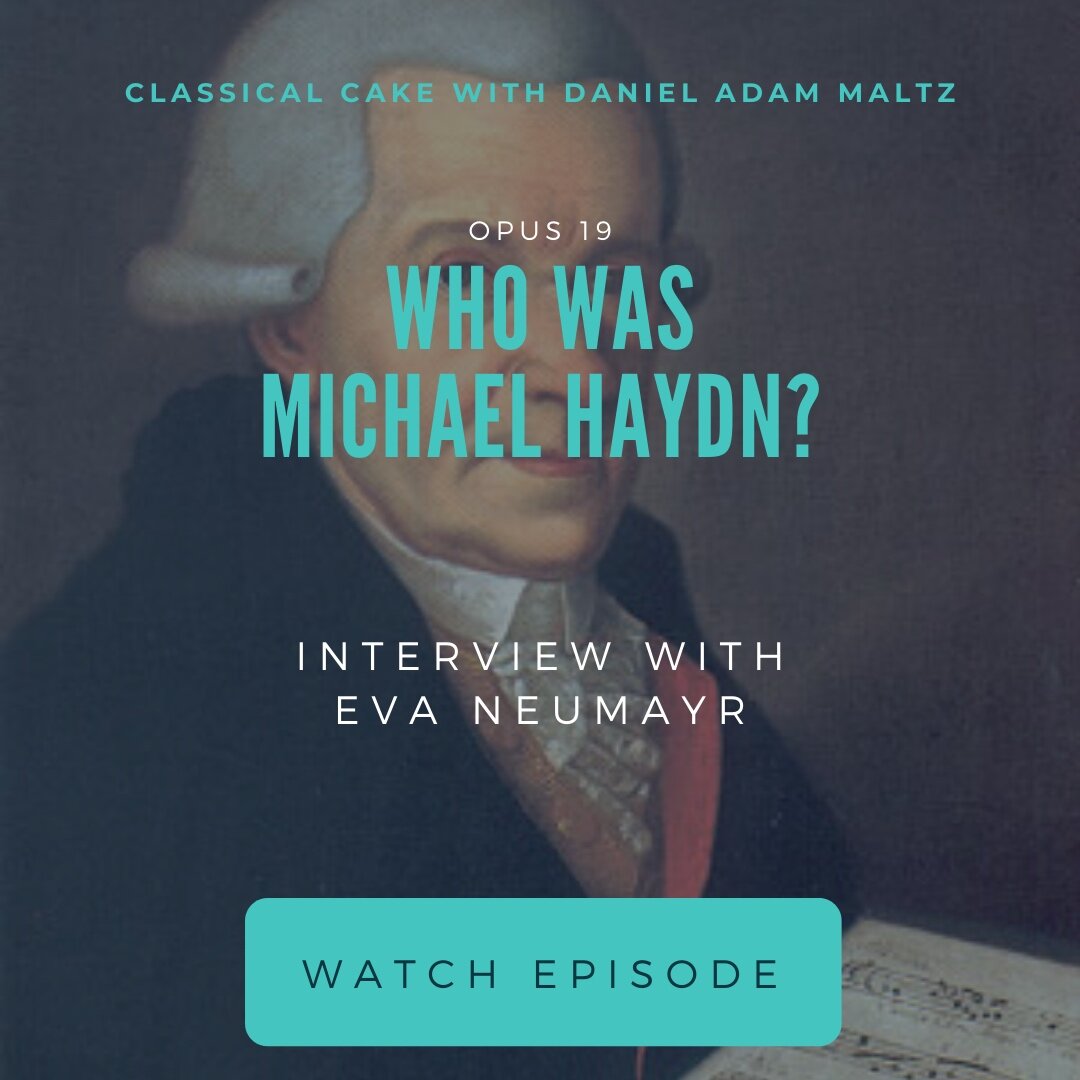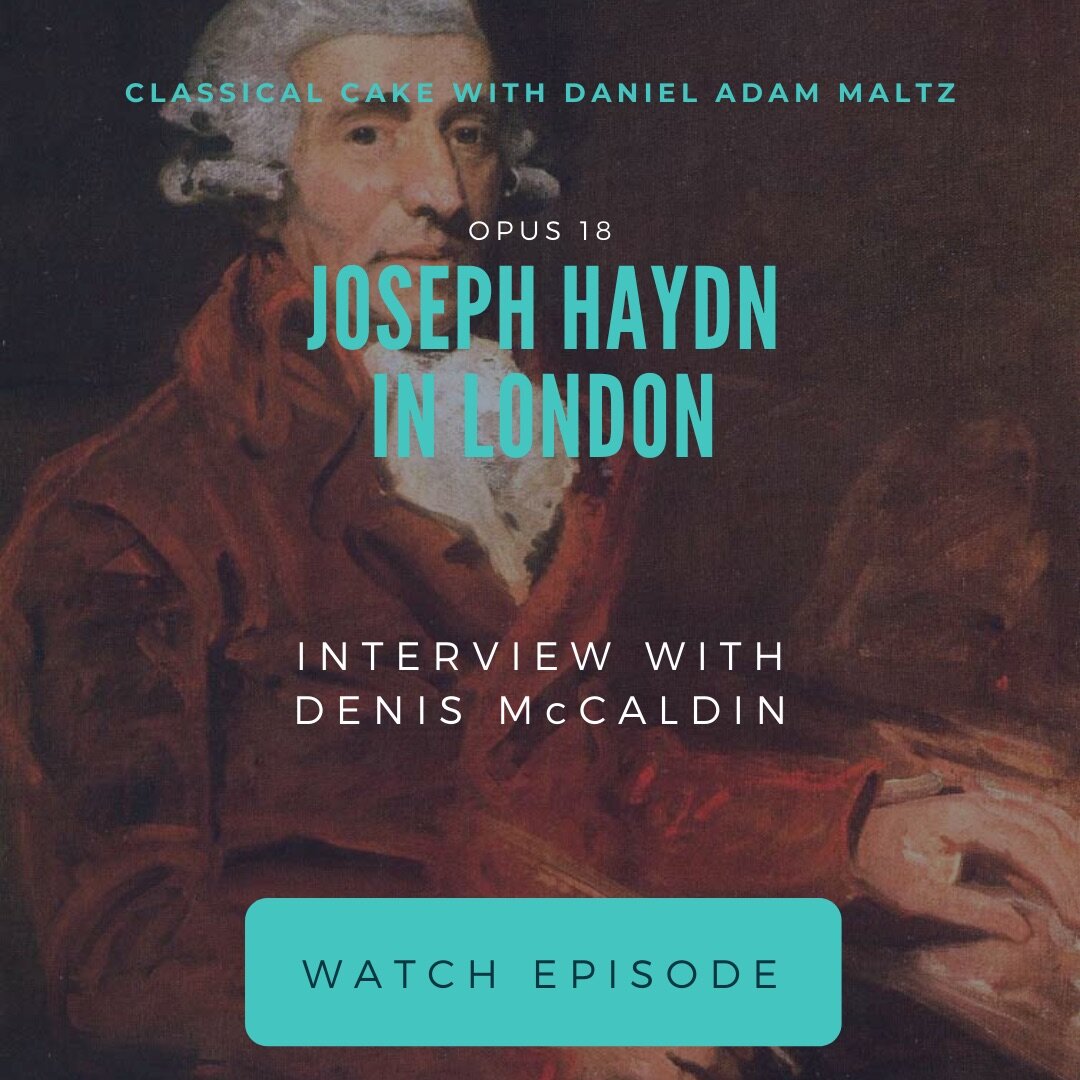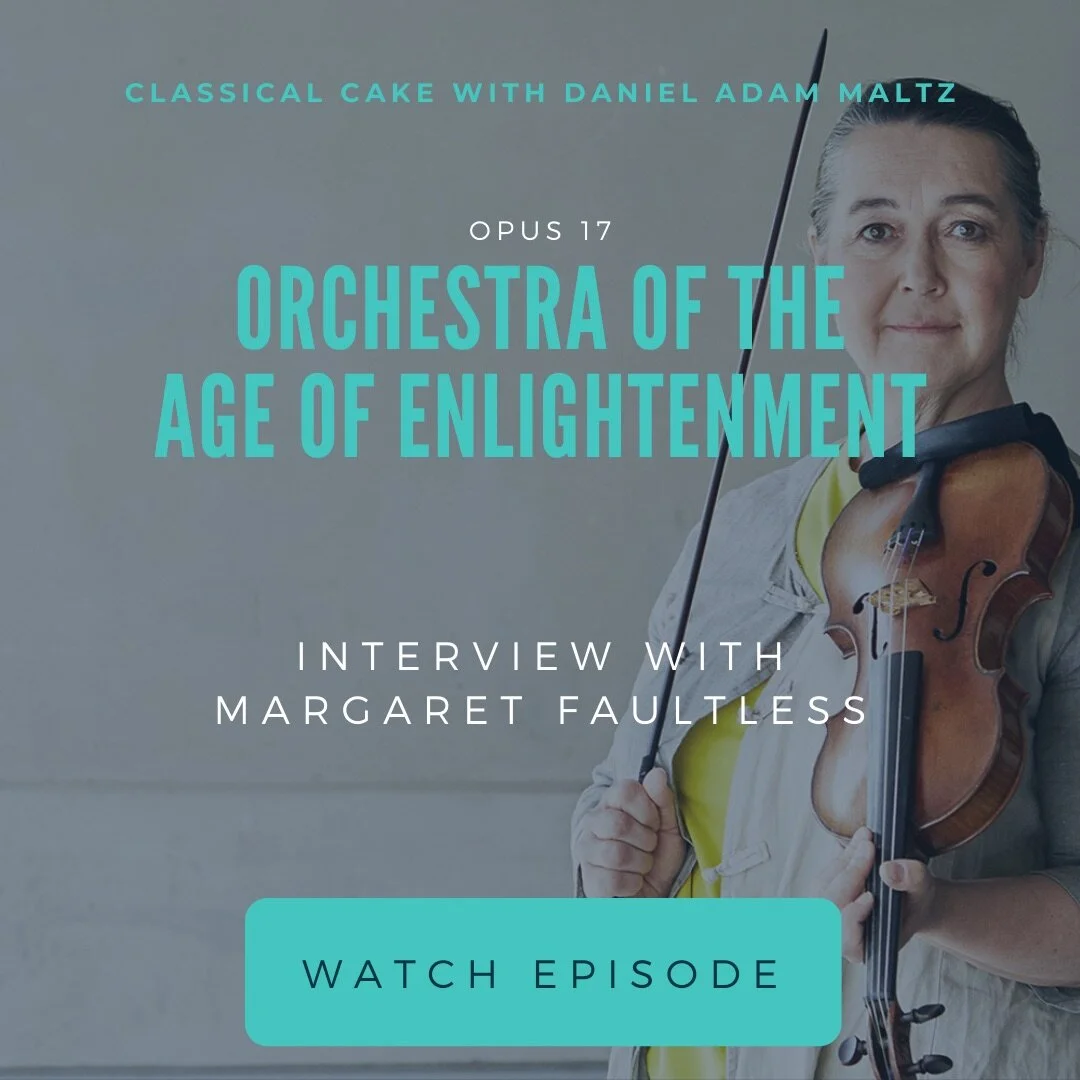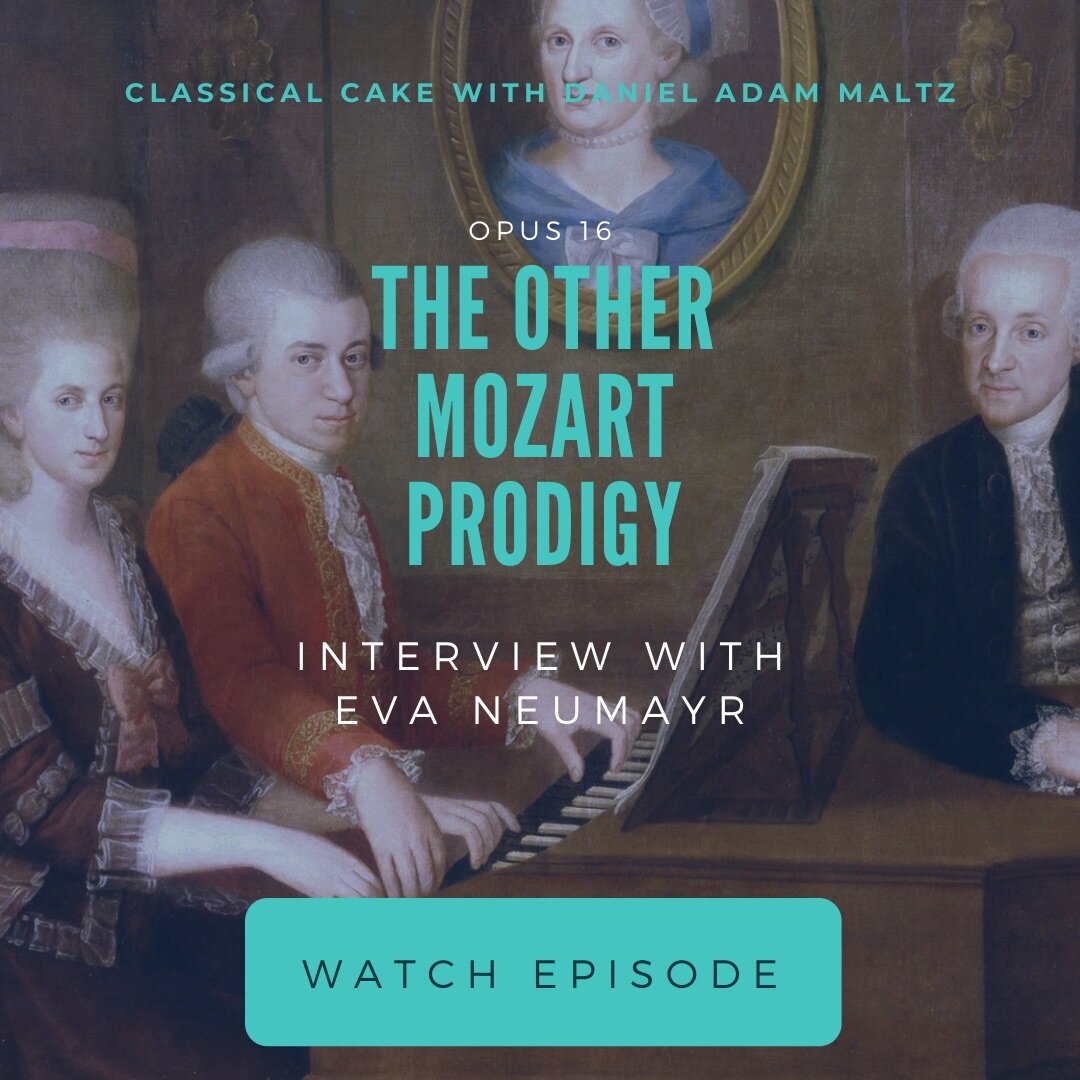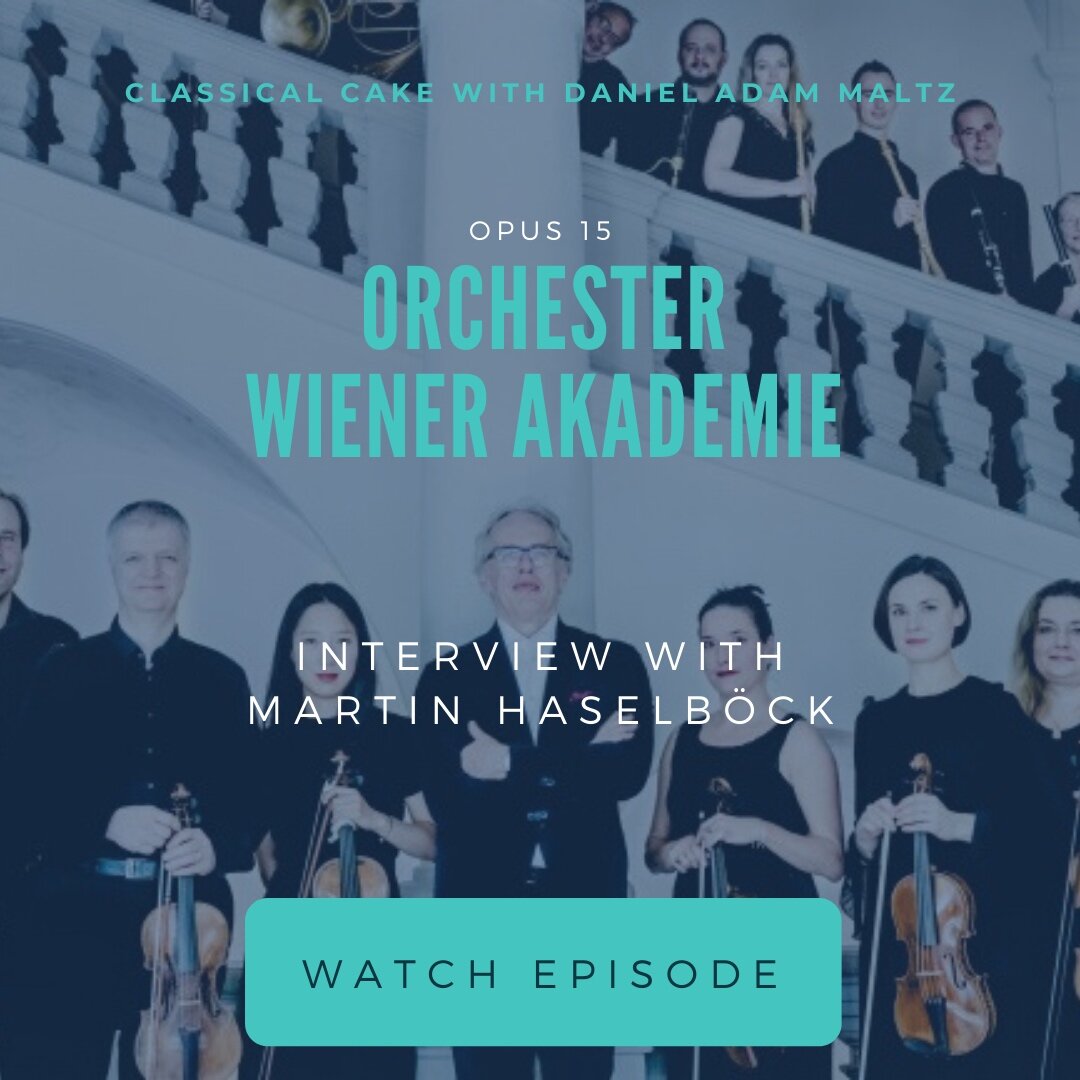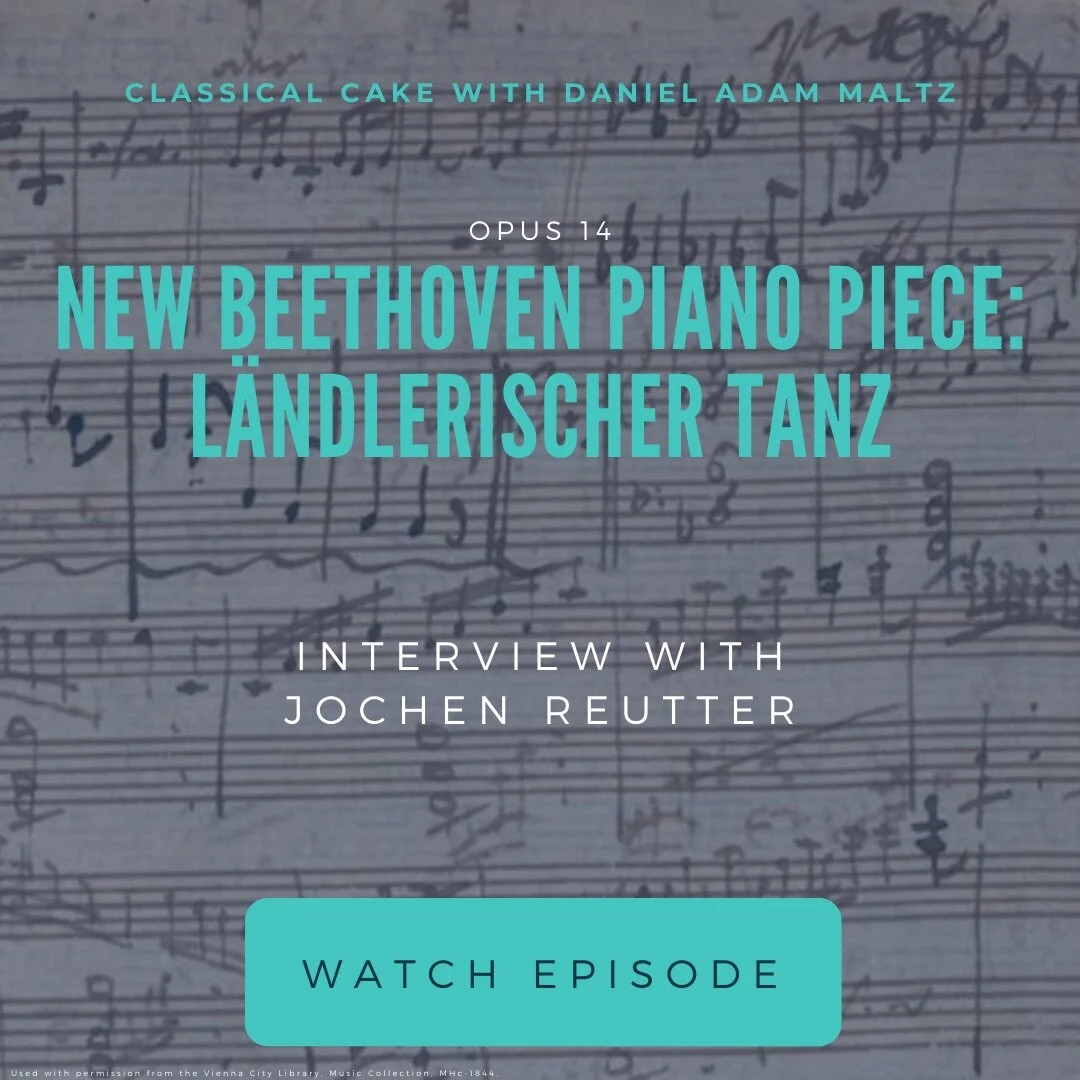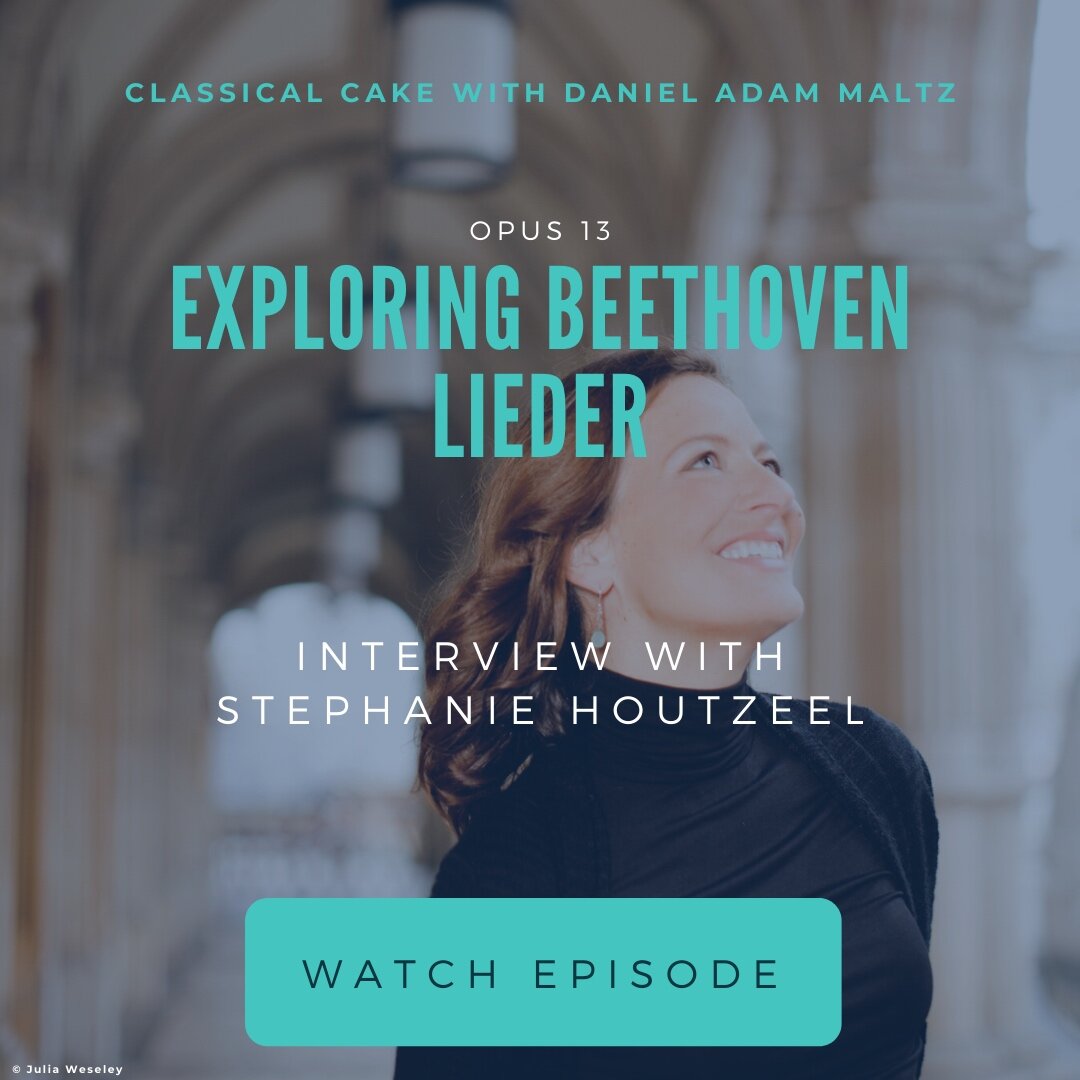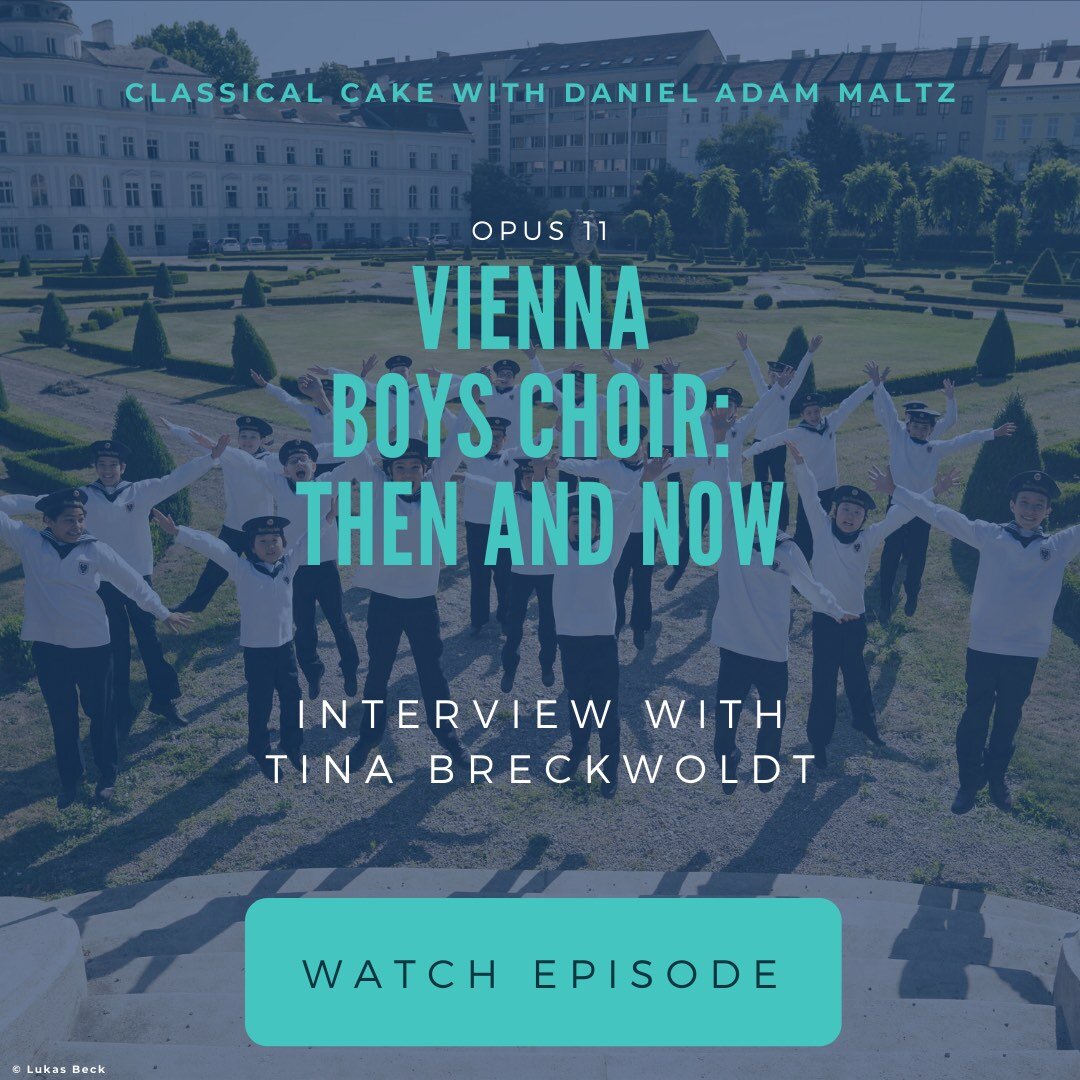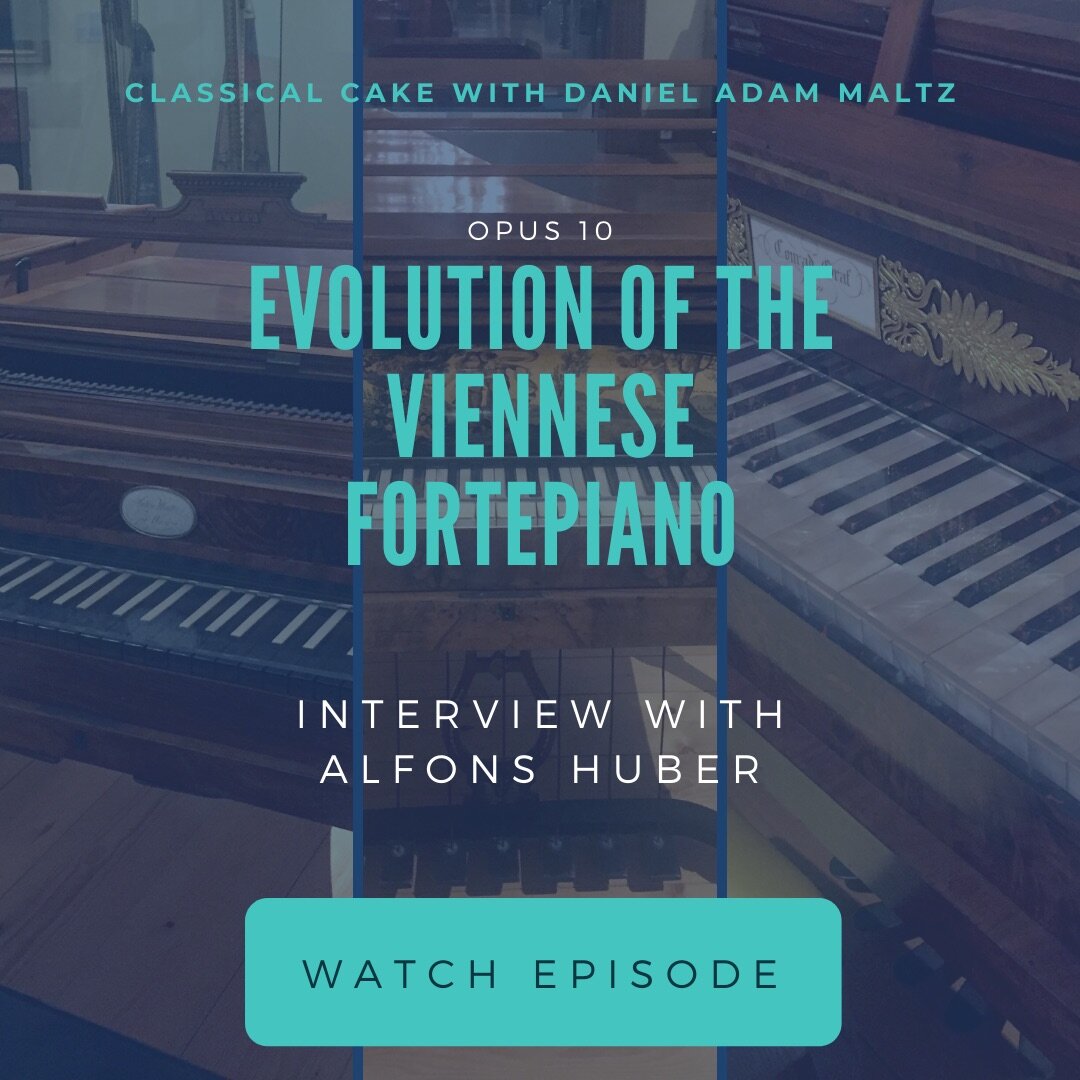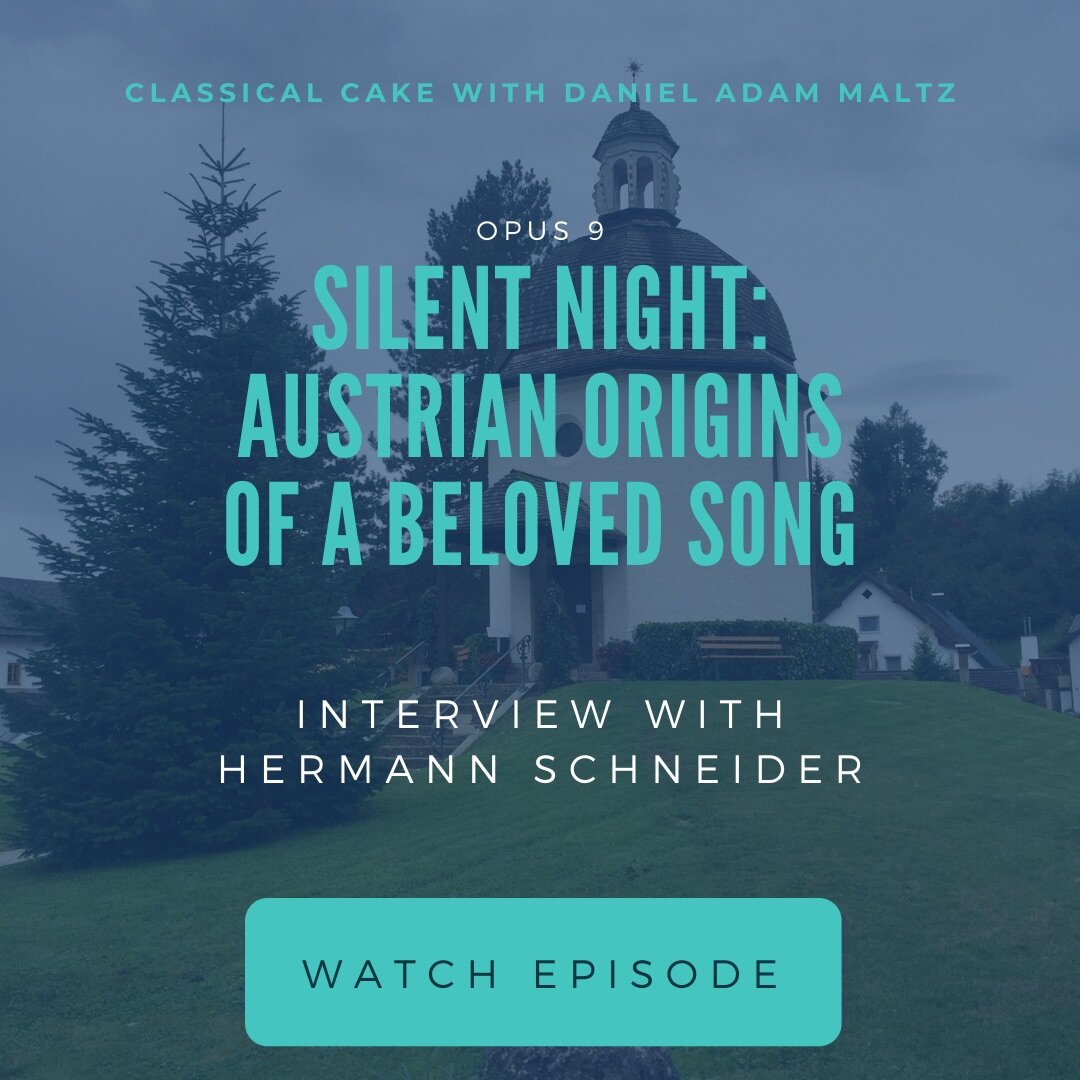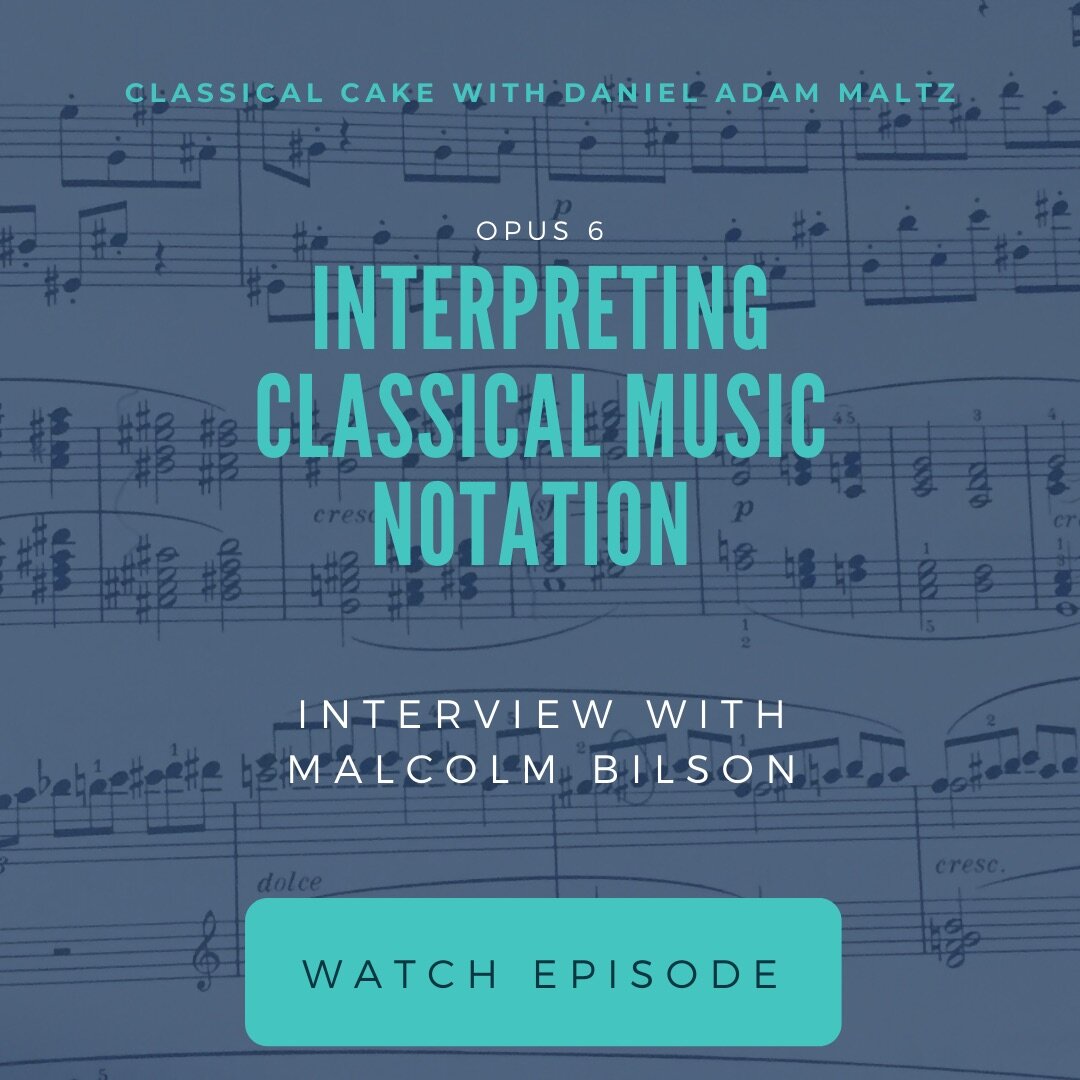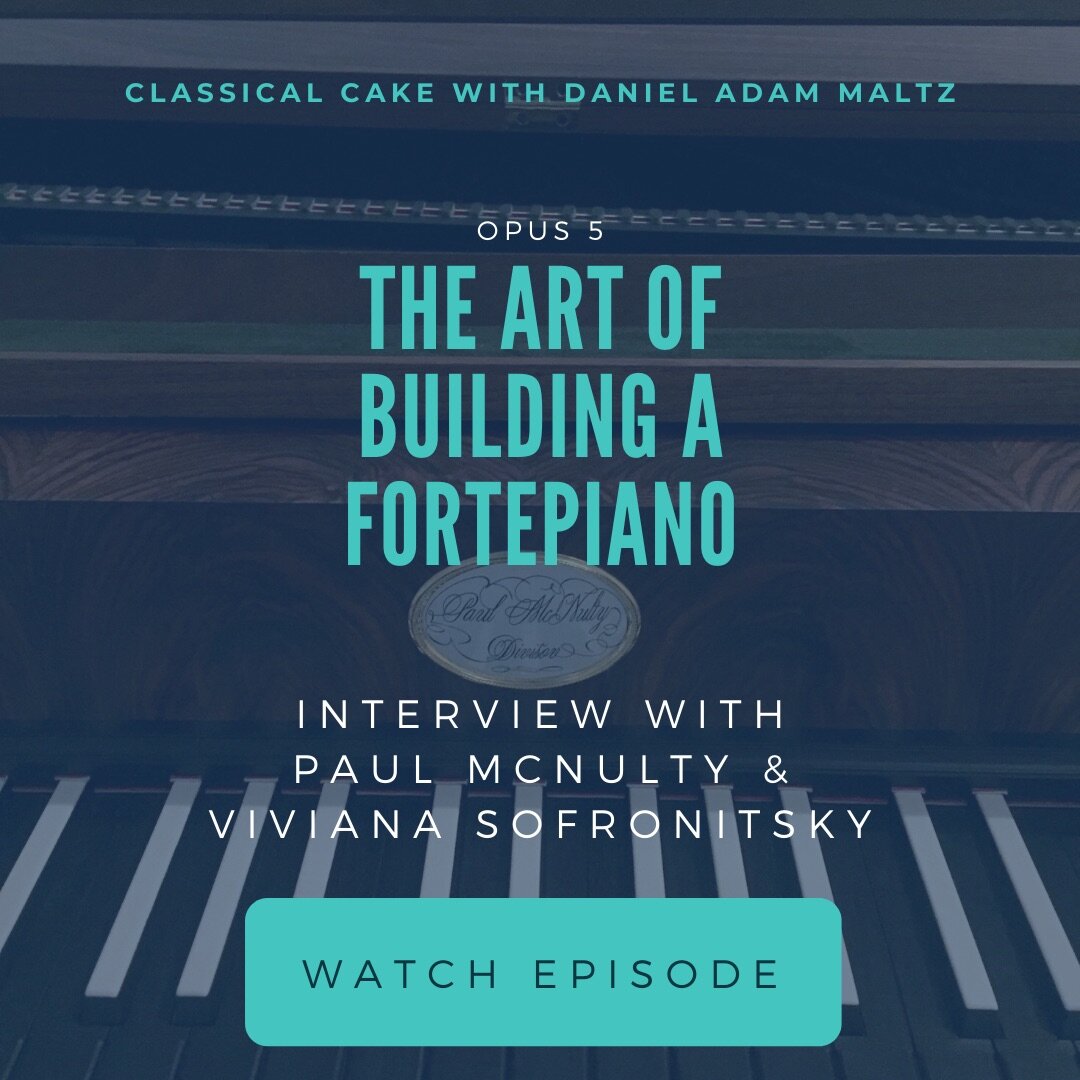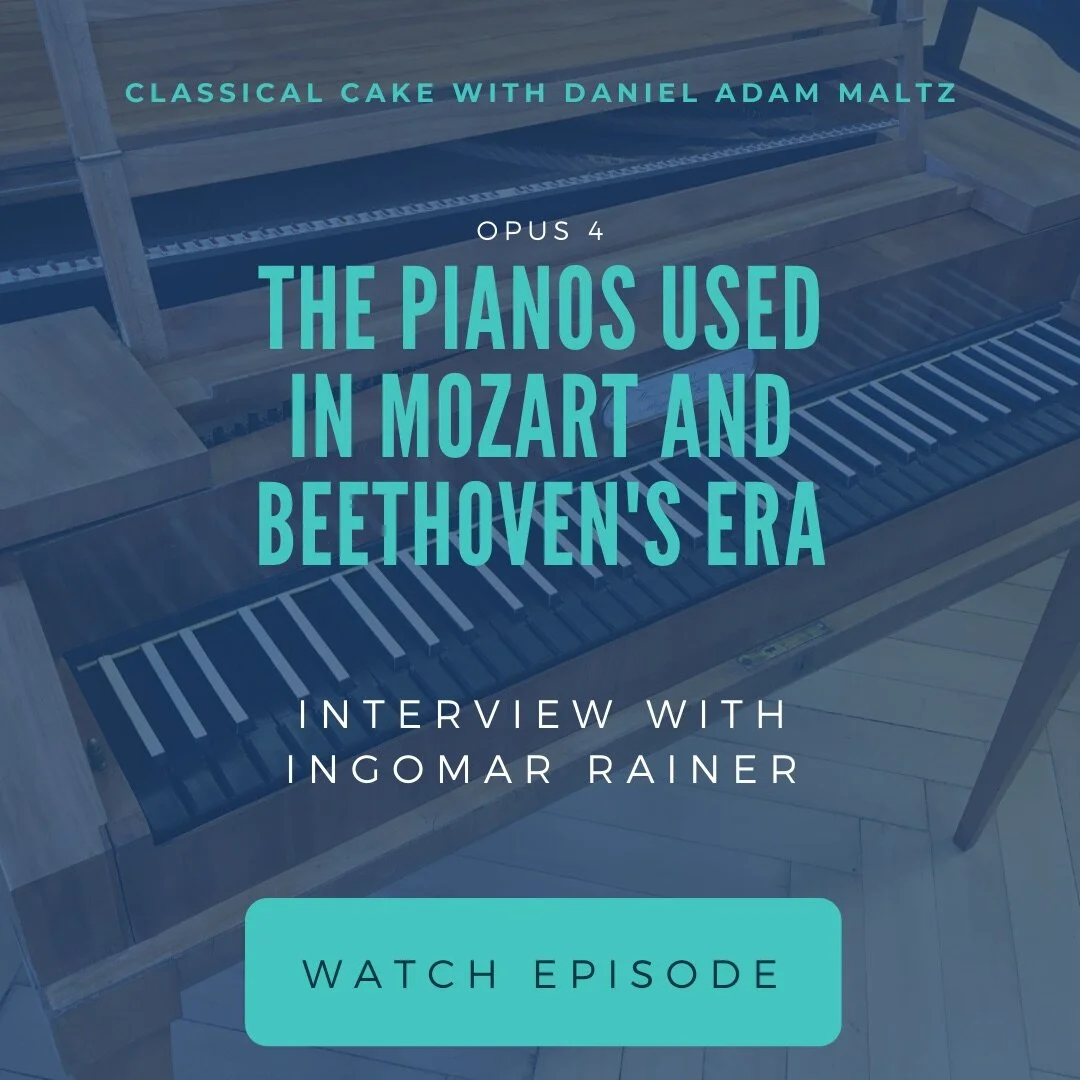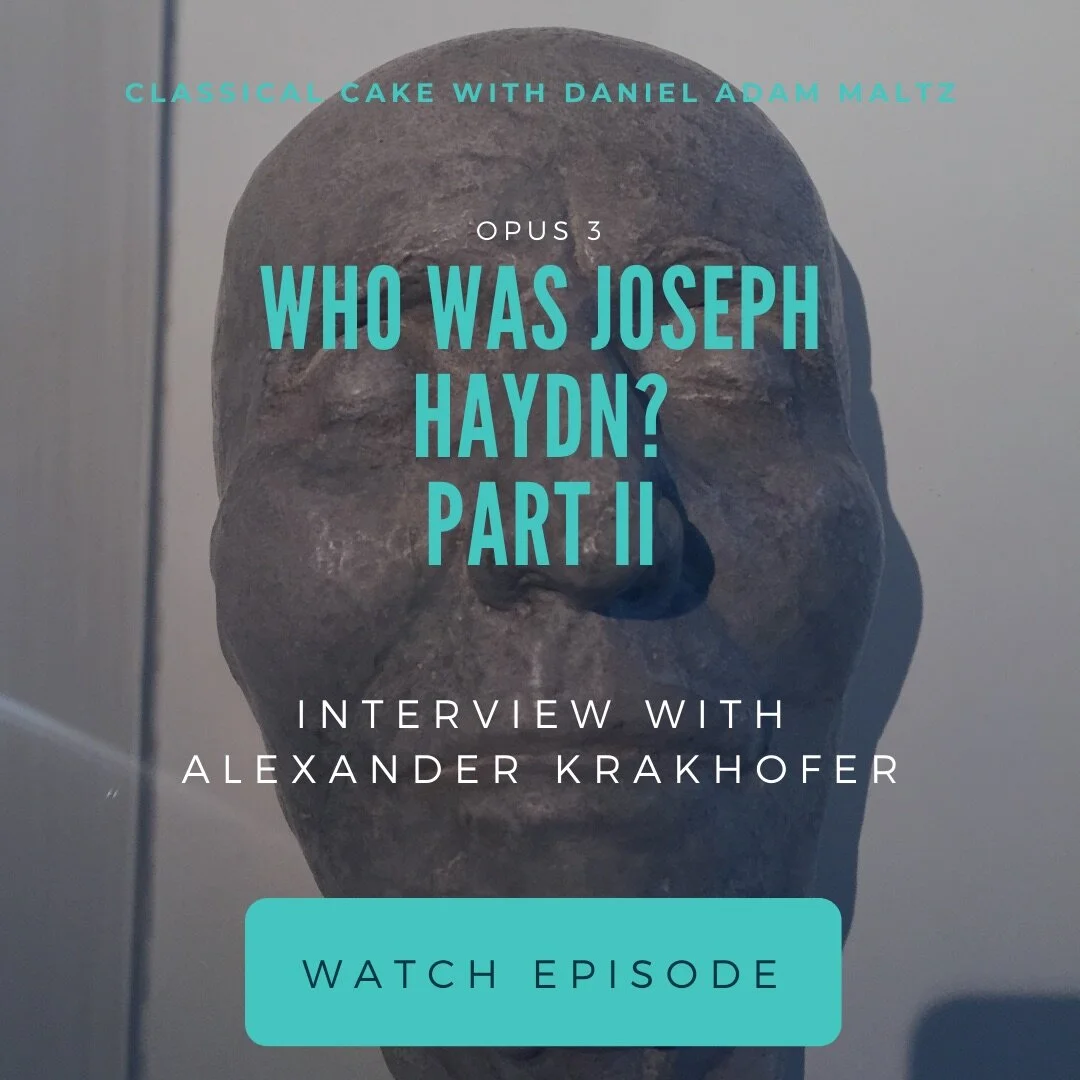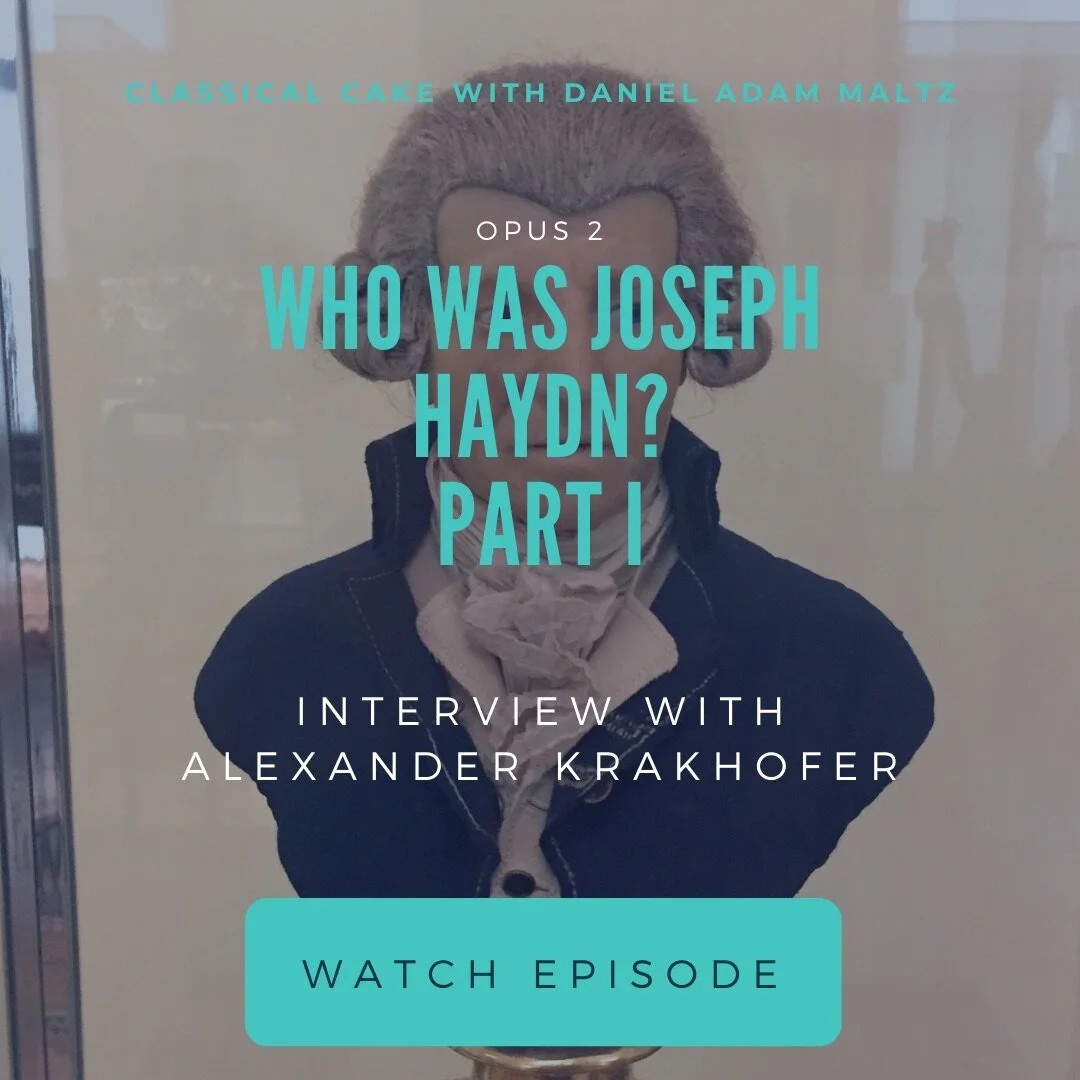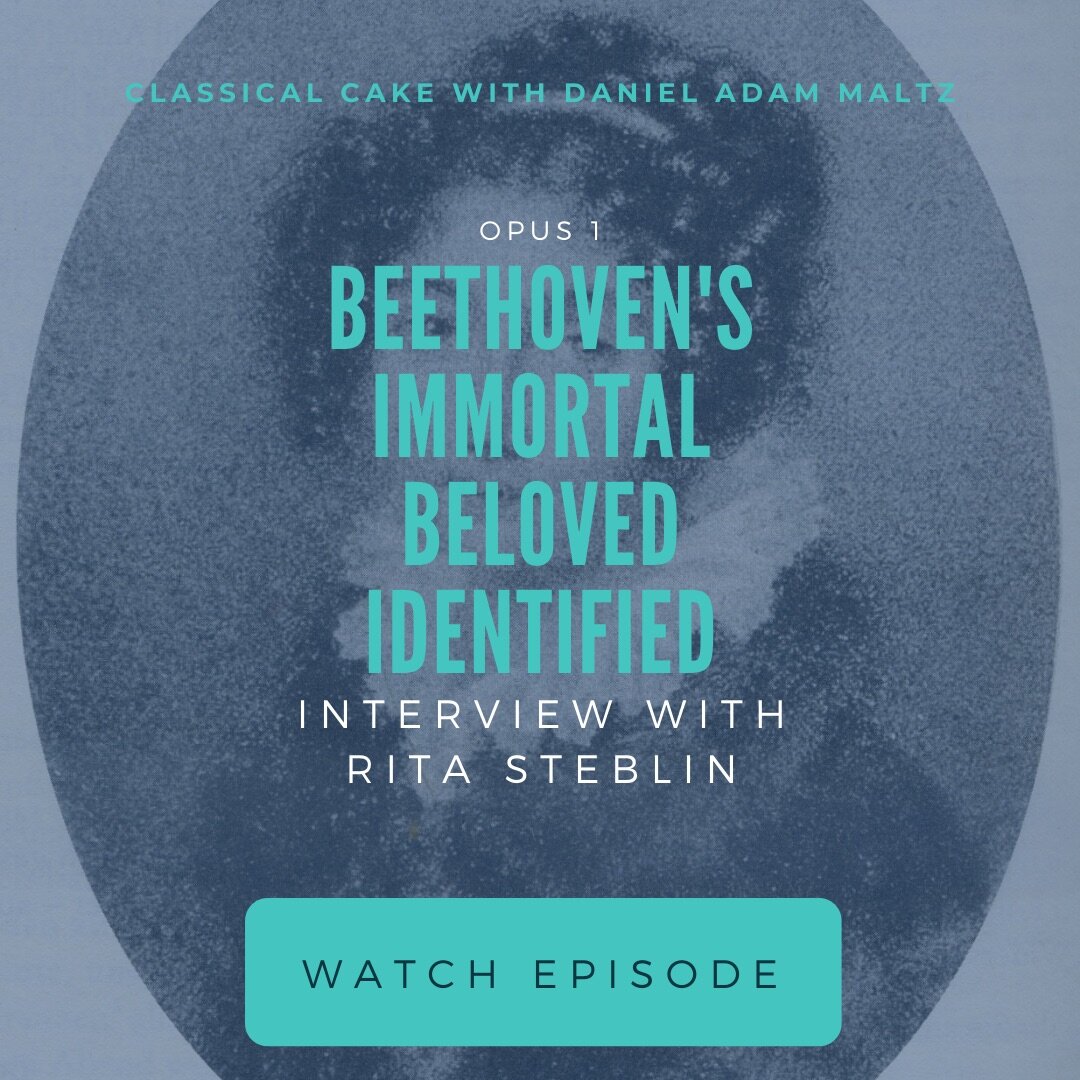Discover Classical Cake
Classical Cake

Classical Cake
Author: Daniel Adam Maltz
Subscribed: 7Played: 17Subscribe
Share
© Copyright 2020, Daniel Adam Maltz
Description
Welcome to Classical Cake – your unique look into Vienna, the capital of classical music. Imagine yourself as a special guest in conversation with performers and experts over one of Vienna's delicious cakes. Host Daniel Adam Maltz is your guide to discovering the hidden secrets of classical music and Austrian culture. Vienna is the home of Mozart, Beethoven, and many others because THIS is the place alive with the Sound of Music. VISIT ClassicalCake.com for more exclusive content.
18 Episodes
Reverse
In this episode, you’ll:Discover why he isn’t better known in the 21st centuryLearn about Michael Haydn’s relationships with both Wolfgang Amadé Mozart and his father Leopold MozartHear about his strong influence on church music.
In this episode, you’ll:Discover the reasons behind Haydn’s decision to temporarily relocate from Austria to England.Hear how he was received by London society and the influence of its concert cultureUnderstand how these trips culminated into one of Haydn’s greatest works, The Creation.
In this episode, you’ll:Learn about the Age of Enlightenment’s ideals and how they affect the OAEDiscover the power of creating innovative educational programs to reach new audiencesUnderstand the importance of modern and period instrument musicians learning from each other
In this episode, you’ll:Discover how Maria Anna and Wolfgang influenced each other throughout their lives.Identify why societal expectations cut short Maria Anna's careerLearn how she championed her brother, impacting our understanding of his life and works.
Orchester Wiener Akademie is a period instrument orchestra based in Vienna. Founder and music director Martin Haselböck talks about how Vienna provides unique opportunities to feel closer to Classical-era composers, such as the ability to perform in the original performance settings with their RESOUND concert series.
A previously unknown Beethoven piano piece was discovered in January 2020 among the archives of the Vienna City Hall Library. The piece was found by Dr. Jochen Reutter, editor-in-chief at Wiener Urtext Edition, and we discuss this exciting new find.
Beethoven Lieder, or art songs, are an underrepresented body of classical music repertoire. Guest Stephanie Houtzeel — mezzo-soprano from the Vienna State Opera — discusses what she learned by performing these songs during the Beethoven 2020 celebrations.. You'll also hear her perform three of Beethoven’s Lieder, accompanied by Daniel Adam Maltz.
Chorus Viennensis is a male choir composed of former members of the Vienna Boys Choir. They champion works from the Renaissance through today’s pop music — and their Advent concerts are a must-see at Christmas. Michael Schneider, conductor and artistic director, and chairman Armin Radlherr talk about the group’s unique place in Viennese music culture.
The Vienna Boys Choir (German: Wiener Sängerknaben) has delighted audiences for over 500 years and acts as an unofficial ambassador of Viennese music culture. Dr. Tina Breckwoldt, official historian for the choir, discusses their story — both past and present.
Fortepianos championed by classical composers such as Beethoven and Mozart came from a rich tradition of piano making in Vienna. Guest Dr. Alfons Huber from Vienna’s Collection of Historic Musical Instruments explains fortepiano history and why these pianos disappeared after the classical era.
Silent Night was composed in Oberndorf, a small village in Austria, but spread across the world as the most performed Christmas song. Guest Hermann Schneider explains the history of "Silent Night" and why it captures our hearts.
Alma Rosé was a celebrity and classical music royalty — Gustav Mahler was her uncle and her father was concertmaster for the Vienna Philharmonic. But, the next chapter of her life included: Nazis, the infamous Auschwitz-Birkenau concentration camp, a prisoner’s orchestra, and saving lives. Hear her incredible story from experts Dr. Michaela Raggam-Blesch, Dr. Heidemarie Uhl, and Dr. Monika Sommer.
Do you really know how to read classical music from the era of Haydn, Mozart, and Beethoven? In this episode of Classical Cake, guest Malcolm Bilson – an expert in historical performance practices – will make you question what you’ve learned as he gives tips on interpreting musical notation.
Classical music from Mozart and Beethoven’s day was written for the fortepiano. Guests Paul McNulty and Viviana Sofronitsky build and test fortepiano replicas with painstaking detail. The result is a sound that makes classical music come alive in a way that modern pianos can’t.
Piano compositions by Mozart and Beethoven were written for the fortepiano – an early piano much different from the Steinways invented 100+ years later than the fortepiano. Guest Ingomar Rainer explains how fortepianos influenced classical music and their impact on today’s pianists.
Joseph Haydn’s personality comes alive with stories about his exchanges with Beethoven and Napoleon. In part 2 of a 2-part series, discover how Haydn’s wit and loyalty affected his relationships and music in his later years.
Joseph Haydn is less talked about than Mozart and Beethoven, but his contributions to classical music are immense. In part 1 of a 2-part series, discover his incredible journey from disgraced choirboy to celebrated composer.
Who was Beethoven’s Immortal Beloved, the unknown woman mentioned in a passionate letter discovered after Beethoven’s death? This question has obsessed people for almost 200 years. Our guest, musicologist Dr. Rita Steblin, finally identifies the correct woman.


